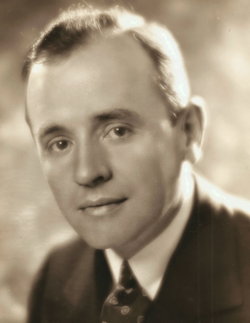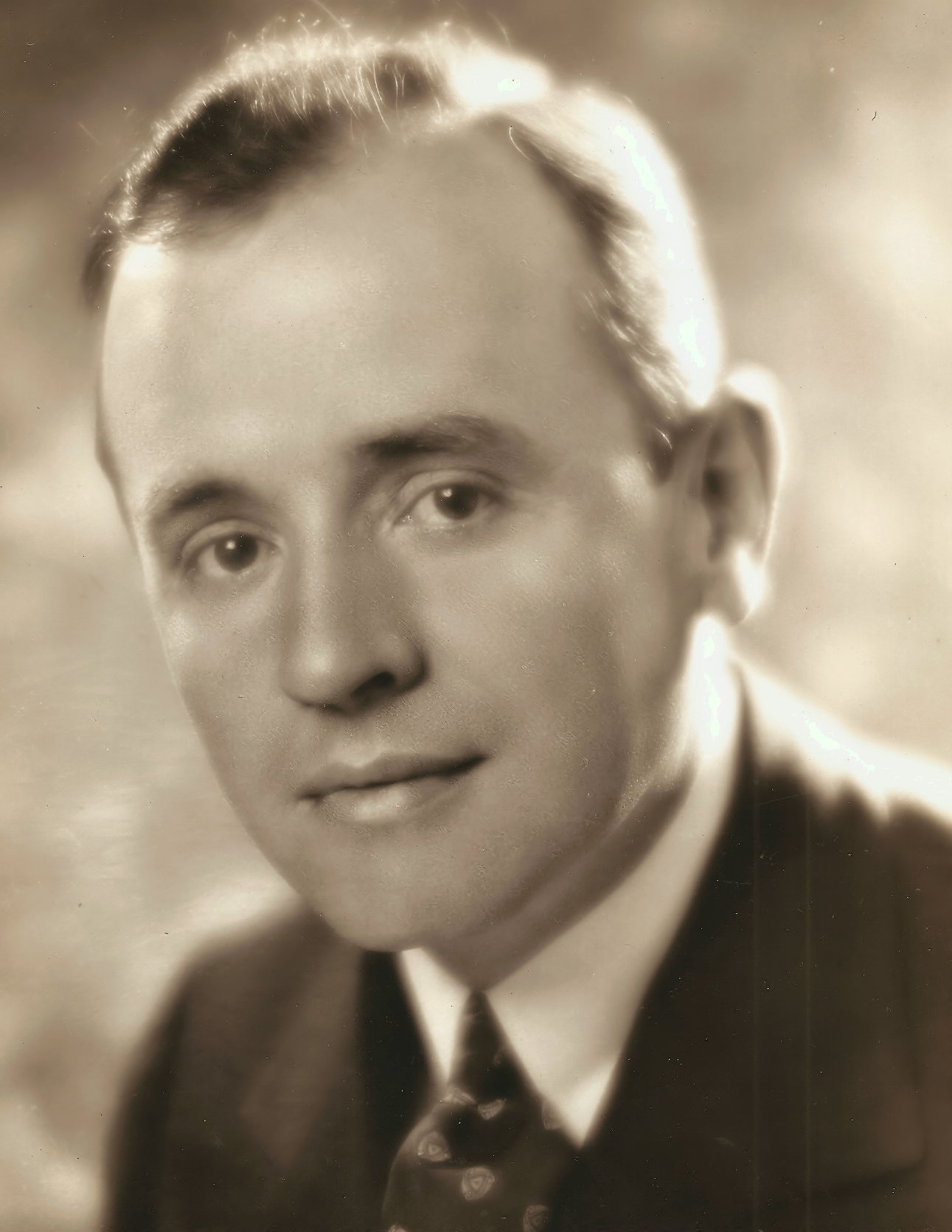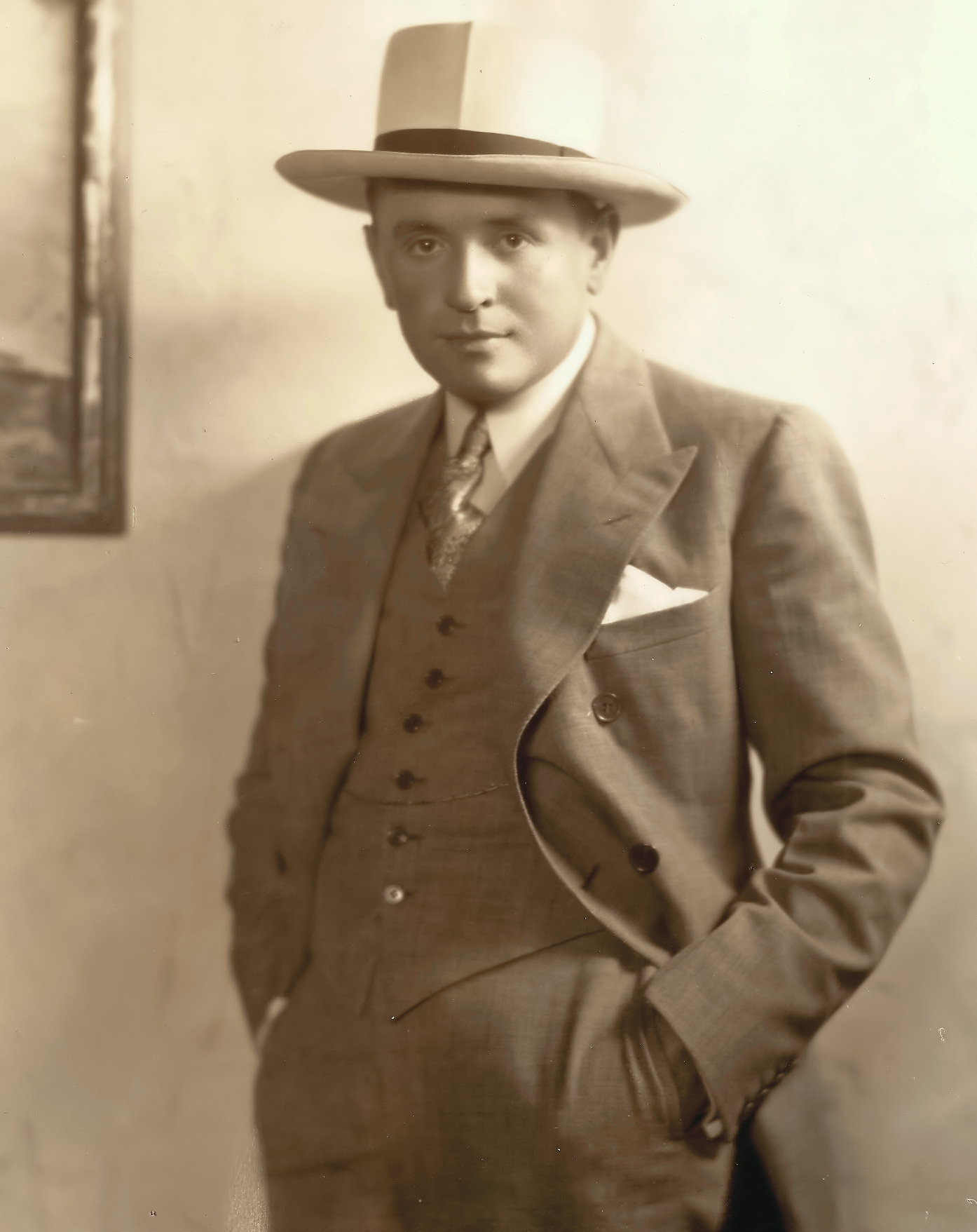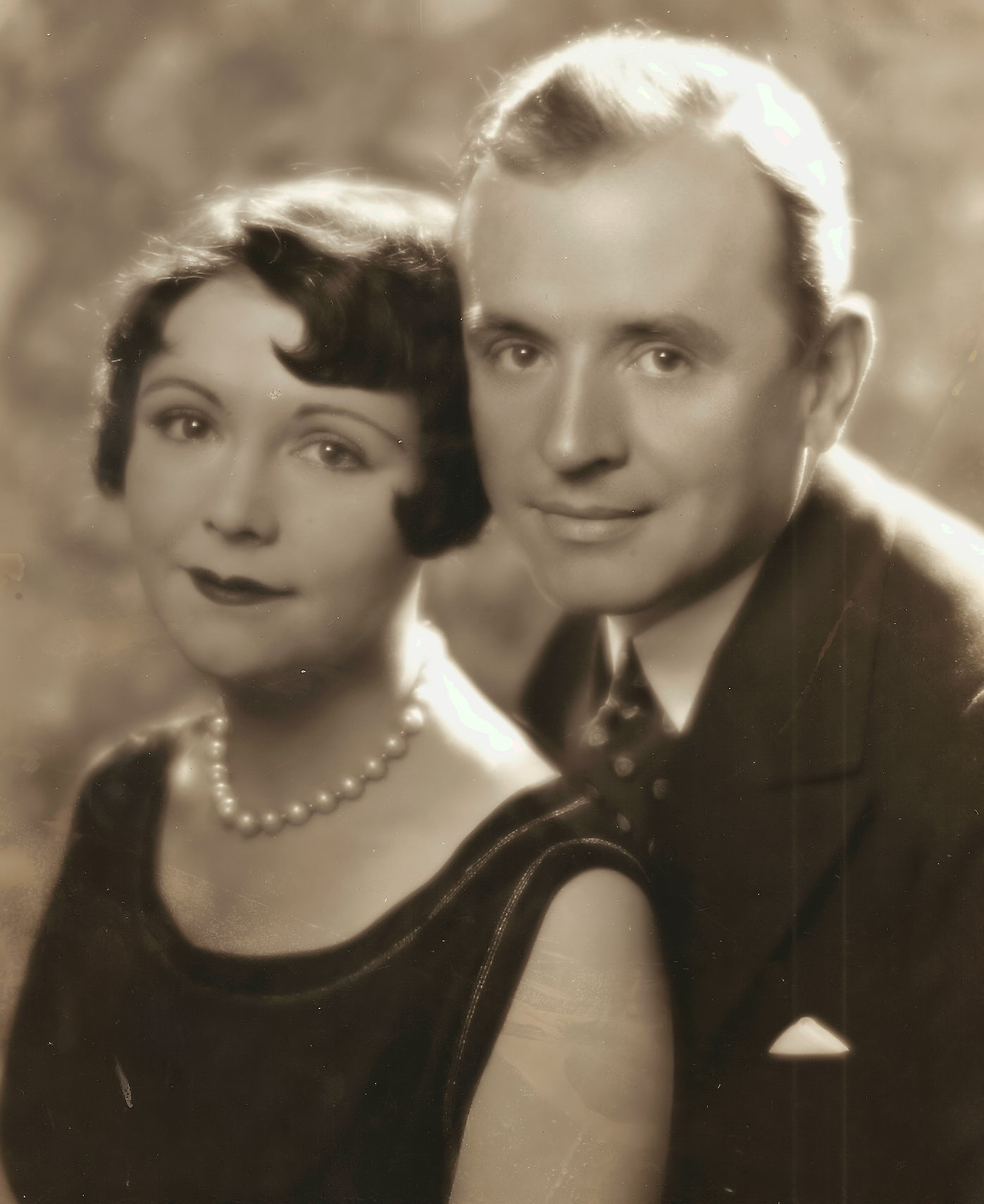Thanks to Dennis M. Duffy and his wonderful book "Henry "Terry" Duffy America's Theatrical Stock Company King" which supplied me with the added info above and material to create more memorials.
COUPLE GIVEN DIVORCE AND DIDN'T KNOW
April 8, 1924
Notified of Fact in Dining At Restaurant and Are Surprised
Anne Nichols, author of Abie's Irish Rose and her husband, Henry Duffy, were astounded yesterday when informed that they had been divorced. As they dined together at the Lamb's Club, friends brought clippings from the afternoon newspapers showing that their marital ties had been severed. And the strange part of it the report was true, although the principles, insisting they love each other as much as ever did not even know procedings had been instituted. The law says they are divorced...they declare they are not. This odd state of affairs came to light when Justice Taylor granted Miss Nichols an interlocutory decree of divorce an awarded her the custody of her 5-year-old son. A great deal of mystery surrounds the decree which was granted after a private hearing in justice chambers with only Miss Nichol's attorney present. The mystery is deepened by the assertion that both Miss Nichols and Duffy that they never contemplated divorce proceedings or engaged counsel to bring suit. When shown the newspaper clippings as they sat at lunch they exclaimed together: "Divorced. Why we know nothing about it. Would we be here if there was any truth to the report?" The court records show that Duffy was accused of spending many pleasant hours in the luxurious apartment of Miss Dorothy Newcomb in Washington and that he and Miss Newcomb registered as "Mr. and Mrs. Duffy." Miss Nichols denied this but Duffy said last night: "I hate to admit it but the fault was entirely mine. For six years Anne and I had been together. When she started making more money than I, it began making me irritable. As the money kept rolling in, my temper got worse and worse. But, honestly, the worst spat Anne and I ever had was over the selection of the color to be used in our library. We are in love with each other as much today as we were when we got married.
Wednesday August 1, 1923
PLAY PRODUCER DISAPPEARED
Los Angeles Investigation has been thrown practically no light on the disappearance here last Saturday of Henry Duffy, theatrical producer and husband of Anne Nichols, playwright. Two asserted suicide notes received by Duffy's friends are reported to be in his handwriting but his closest friends believe his disappearance is due to a nervous temperment and that he will return safely.
DIVORCE FOR AUTHOR OF ABIE'S IRISH ROSE
Decree Granted to Mrs. Anne Nichols Duffy--Husband says it isn't true.
From White Plains came word yesterday that Mrs. Anne Nichols Duffy, author of "Abie's Irish Rose," had received an interlocutory decree of divorce from Henry Duffy, actor, manager and a member of the Lambs. A few hours later, Mr. Duffy emphatically declared that there was not a word of truth in the reported divorce and that he and his wife had no intention of getting one. In the office of the Clerk of Supreme Court in White Plains it was learned that papers in the suit were filed there two weeks ago. testimony was heard by Justice George H. Taylor Jr. of the Supreme Court who gave to Mrs. Duffy the custody of their young son, Henry Duffy Jr. Records of the case showed that Mrs. Duffy gave her residence as the Gedney Farms Hotel at White Plains and that Mr. Duffy was served with papers at the Lambs. he made no defense. In the complaint, it was alleged that mr. Duffy had been too friendly with an unknown young woman in Washington, DC in May of 1923. At the Lambs last night, Mr. Duffy mantained that he and his wife had lunch together yesterday and were on the best of terms. He admitted that he and Mrs. Duffy had at one time contemplated divorce. He said they had been separated for a little more than two years and had talked then of getting a divorce, but had refrained from taking any action because of their six-year-old son.
Henry Duffy later married an actress named Dale Winter and was living with her in San Mateo, Hillsborough County, California on Brewer Avenue in 1930. Their home was valued at $75,000 at that time. His occupation is listed as a theatrical producer and hers as an actress. Also, living with them are Dale's mother, Estelle Winter, and Lucienne Marechal, cook, age 47 and Gustav Degryse, butler, age 33 (both the cook and the butler are from Belgium. Henry states that he was born in Illonois, his father was born in Ireland and his mother was born in Illonois. Dale states that she was born in Ohio, her father was born in Minnesota and her mother was born in Ohio. Dale's mother, Estelle, states that both of her parents were born in Ohio. Dale was a widow to "Big Jim Colosimo" the slain "Levee King" of Chicago. Apparently, upon her husband's death she signed away all claim to his valuable estate. An article called Dale Winter " Beautiful, young and vocally gifted with an obviously sparkling career stretching before her. She staggered everyone who knew her by first appearing in his caberet and then marrying Colosimo."
Colosimo was hailed as "The King of Chicago's Underworld." Colosimo was found murdered one day in his office. Apparently Dale turned over a lot of money and jewels etc. to the first Mrs. Colosimo. The musical comedy "Irene" first brought Dale to the critic's notice. Dale then married actor Henry Duffy who was divorced fromhis wife, Anne Nichols, the author of "Abie's Irish Rose." Henry lost a fortune and custody of his son when he divorced Anne and Dale Winter lost the Colosimo fortune when her ganster husband was assassinated.
Henry Duffy ( 1890- 1961) went to
Los Angeles in 1920 to appear in two plays produced by Oliver Morosco at the
Mason Opera House, and he soon appeared in three more works under Morosco's
aegis, following one to New York for a brief run on Broadway. He made an
abortive attempt to produce a single play in Los Angeles in 1923, after having
managed companies producing Abie Irish Rose, written by his wife, playwright
Anne Nichols. Success in stock management in Montreal in 1924, following his
separation from Nichols, emboldened him to try to organize a chain of stock
companies on the West Coast, beginning in 1924 with the Alcazar Theatre Stock
Company* in San Francisco. By 1929, he would own nine playhouses in
Vancouver, Seattle, Portland, San Francisco, Oakland, and Los Angeles (see
[Henry] Duffy Stock Chain).
On July 14, 1927, he opened his first Los Angeles company at the El Capitan
Theatre in Hollywood. The El Capitan, seating 1,532, was the first legitimate
theatre in Hollywood, opening May 3, 1926, under Edward Smith's direction
with Charlot's Revue. For one year Smith presented a series of sophisticated
plays, but he was unable to find an audience to support this policy. Duffy's
policy was almost the opposite. He offered plays which affirmed the status quo,
plays built around readily recognized characters and upon the equation that what
happened on stage could occur in one's own life, plays which affirmed the
national belief that hard work and a lucky break brought success, social
recognition, and an attractive mate. In addition to an effort to present "clean
plays" for the family trade, Duffy attempted to build a loyal audience.
Thanks to Dennis M. Duffy and his wonderful book "Henry "Terry" Duffy America's Theatrical Stock Company King" which supplied me with the added info above and material to create more memorials.
COUPLE GIVEN DIVORCE AND DIDN'T KNOW
April 8, 1924
Notified of Fact in Dining At Restaurant and Are Surprised
Anne Nichols, author of Abie's Irish Rose and her husband, Henry Duffy, were astounded yesterday when informed that they had been divorced. As they dined together at the Lamb's Club, friends brought clippings from the afternoon newspapers showing that their marital ties had been severed. And the strange part of it the report was true, although the principles, insisting they love each other as much as ever did not even know procedings had been instituted. The law says they are divorced...they declare they are not. This odd state of affairs came to light when Justice Taylor granted Miss Nichols an interlocutory decree of divorce an awarded her the custody of her 5-year-old son. A great deal of mystery surrounds the decree which was granted after a private hearing in justice chambers with only Miss Nichol's attorney present. The mystery is deepened by the assertion that both Miss Nichols and Duffy that they never contemplated divorce proceedings or engaged counsel to bring suit. When shown the newspaper clippings as they sat at lunch they exclaimed together: "Divorced. Why we know nothing about it. Would we be here if there was any truth to the report?" The court records show that Duffy was accused of spending many pleasant hours in the luxurious apartment of Miss Dorothy Newcomb in Washington and that he and Miss Newcomb registered as "Mr. and Mrs. Duffy." Miss Nichols denied this but Duffy said last night: "I hate to admit it but the fault was entirely mine. For six years Anne and I had been together. When she started making more money than I, it began making me irritable. As the money kept rolling in, my temper got worse and worse. But, honestly, the worst spat Anne and I ever had was over the selection of the color to be used in our library. We are in love with each other as much today as we were when we got married.
Wednesday August 1, 1923
PLAY PRODUCER DISAPPEARED
Los Angeles Investigation has been thrown practically no light on the disappearance here last Saturday of Henry Duffy, theatrical producer and husband of Anne Nichols, playwright. Two asserted suicide notes received by Duffy's friends are reported to be in his handwriting but his closest friends believe his disappearance is due to a nervous temperment and that he will return safely.
DIVORCE FOR AUTHOR OF ABIE'S IRISH ROSE
Decree Granted to Mrs. Anne Nichols Duffy--Husband says it isn't true.
From White Plains came word yesterday that Mrs. Anne Nichols Duffy, author of "Abie's Irish Rose," had received an interlocutory decree of divorce from Henry Duffy, actor, manager and a member of the Lambs. A few hours later, Mr. Duffy emphatically declared that there was not a word of truth in the reported divorce and that he and his wife had no intention of getting one. In the office of the Clerk of Supreme Court in White Plains it was learned that papers in the suit were filed there two weeks ago. testimony was heard by Justice George H. Taylor Jr. of the Supreme Court who gave to Mrs. Duffy the custody of their young son, Henry Duffy Jr. Records of the case showed that Mrs. Duffy gave her residence as the Gedney Farms Hotel at White Plains and that Mr. Duffy was served with papers at the Lambs. he made no defense. In the complaint, it was alleged that mr. Duffy had been too friendly with an unknown young woman in Washington, DC in May of 1923. At the Lambs last night, Mr. Duffy mantained that he and his wife had lunch together yesterday and were on the best of terms. He admitted that he and Mrs. Duffy had at one time contemplated divorce. He said they had been separated for a little more than two years and had talked then of getting a divorce, but had refrained from taking any action because of their six-year-old son.
Henry Duffy later married an actress named Dale Winter and was living with her in San Mateo, Hillsborough County, California on Brewer Avenue in 1930. Their home was valued at $75,000 at that time. His occupation is listed as a theatrical producer and hers as an actress. Also, living with them are Dale's mother, Estelle Winter, and Lucienne Marechal, cook, age 47 and Gustav Degryse, butler, age 33 (both the cook and the butler are from Belgium. Henry states that he was born in Illonois, his father was born in Ireland and his mother was born in Illonois. Dale states that she was born in Ohio, her father was born in Minnesota and her mother was born in Ohio. Dale's mother, Estelle, states that both of her parents were born in Ohio. Dale was a widow to "Big Jim Colosimo" the slain "Levee King" of Chicago. Apparently, upon her husband's death she signed away all claim to his valuable estate. An article called Dale Winter " Beautiful, young and vocally gifted with an obviously sparkling career stretching before her. She staggered everyone who knew her by first appearing in his caberet and then marrying Colosimo."
Colosimo was hailed as "The King of Chicago's Underworld." Colosimo was found murdered one day in his office. Apparently Dale turned over a lot of money and jewels etc. to the first Mrs. Colosimo. The musical comedy "Irene" first brought Dale to the critic's notice. Dale then married actor Henry Duffy who was divorced fromhis wife, Anne Nichols, the author of "Abie's Irish Rose." Henry lost a fortune and custody of his son when he divorced Anne and Dale Winter lost the Colosimo fortune when her ganster husband was assassinated.
Henry Duffy ( 1890- 1961) went to
Los Angeles in 1920 to appear in two plays produced by Oliver Morosco at the
Mason Opera House, and he soon appeared in three more works under Morosco's
aegis, following one to New York for a brief run on Broadway. He made an
abortive attempt to produce a single play in Los Angeles in 1923, after having
managed companies producing Abie Irish Rose, written by his wife, playwright
Anne Nichols. Success in stock management in Montreal in 1924, following his
separation from Nichols, emboldened him to try to organize a chain of stock
companies on the West Coast, beginning in 1924 with the Alcazar Theatre Stock
Company* in San Francisco. By 1929, he would own nine playhouses in
Vancouver, Seattle, Portland, San Francisco, Oakland, and Los Angeles (see
[Henry] Duffy Stock Chain).
On July 14, 1927, he opened his first Los Angeles company at the El Capitan
Theatre in Hollywood. The El Capitan, seating 1,532, was the first legitimate
theatre in Hollywood, opening May 3, 1926, under Edward Smith's direction
with Charlot's Revue. For one year Smith presented a series of sophisticated
plays, but he was unable to find an audience to support this policy. Duffy's
policy was almost the opposite. He offered plays which affirmed the status quo,
plays built around readily recognized characters and upon the equation that what
happened on stage could occur in one's own life, plays which affirmed the
national belief that hard work and a lucky break brought success, social
recognition, and an attractive mate. In addition to an effort to present "clean
plays" for the family trade, Duffy attempted to build a loyal audience.
Family Members
Sponsored by Ancestry
Advertisement
Advertisement

















